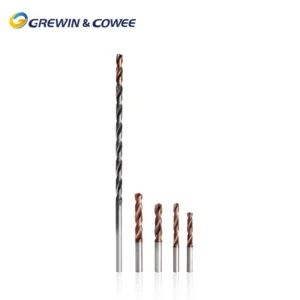Table of Contents
ToggleHSS Drills
High-speed steel (HSS) drills are essential tools in the metalworking industry, known for their effectiveness and efficiency in various applications. Whether for drilling holes in steel, aluminum, or other hard materials, HSS drills provide exceptional performance that meets the demands of professionals worldwide. In this article, we’ll delve into the benefits of HSS drills and explore their applications, offering insights that can enhance your decision-making when it comes to tool purchasing.
The Advantages of HSS Drills
When considering tools for metalworking, precision and speed stand at the forefront. HSS drills excel in both, and here’s why:
1. Durability and Longevity
High-speed steel is designed to withstand high temperatures and pressures, making HSS drills incredibly durable. For example, in a manufacturing setting where thousands of holes must be drilled daily, the resilience of HSS drills means they require less frequent replacement. This durability translates to reduced costs and minimized downtime for businesses, as they can rely on these tools to perform consistently over time.
2. Versatility
HSS drills can handle a broad range of materials, from soft metals like aluminum to harder ones such as stainless steel. This versatility means that a single set of drills can serve various purposes, making them an economical choice. For instance, in a machine shop where different projects demand different materials, HSS drills allow workers to switch tasks without needing multiple specialized tools.
3. Precision and Smooth Finish
The design of HSS drills enables precise cuts and a smooth finish. A significant concern for manufacturers is maintaining quality while adhering to tight timelines. HSS drills can produce clean holes with minimal burrs, ensuring that subsequent processes—such as tapping or fastening—proceed without issues. Consider a scenario in automotive manufacturing, where exact specifications are vital; using HSS drills can help maintain these standards effectively.
Specific Applications in Metalworking
Understanding the versatility of HSS drills is crucial, especially when considering various applications. Here are some specific scenarios where these drills shine:
Automotive Industry
Whether drilling into engine blocks or assembling other components, HSS drills are prevalent in this field. They can drill precise holes necessary for mounting and fastening parts, ensuring that vehicles operate safely and efficiently. Opting for high-quality HSS drills allows manufacturers to maintain the integrity of their materials while speeding up production lines.
Construction and Fabrication
In construction, metalworking often involves creating structural components that require robust drilling capabilities. HSS drills allow for quick and precise hole creation in metal beams, plates, and other materials used in building structures. By utilizing HSS drills, contractors ensure that their projects are completed on time and meet safety standards.
Aerospace Engineering
The aerospace sector demands exceptionally high precision and durability. HSS drills are crucial for creating holes in critical components that will endure extreme conditions. When drilling compatible materials like titanium or aluminum alloys, precision is paramount—HSS drills provide the reliability needed to ensure safety in flight.
Enhancing Precision with HSS Technology
HSS technology continues to evolve, with manufacturers enhancing the design and functionality of these drills. Some companies now incorporate coatings that reduce friction and heat buildup, further extending the life of the drill and improving the finished product. For instance, coated HSS drills can drill faster and handle tougher materials, which is especially beneficial in high-speed applications where efficiency is essential.
Moreover, some advanced HSS drills are engineered to reduce the risk of breakage and chipping. In high-pressure environments, such as a production line, these improvements can significantly affect productivity. By choosing high-quality HSS drills, businesses can achieve better results while minimizing the risk of rework or rejected products due to drill failure.
Making the Right Choice
When considering the purchase of HSS drills, a few factors come into play. Understanding the specific projects you’ll be tackling is essential. For example, if your work primarily involves softer metals, a specific type of HSS drill that specializes in that material might be the best choice. Conversely, if you regularly work with tougher steel, selecting a drill designed for high-performance might save time and enhance quality.
It’s also advisable to consider the drill’s size and type. Standard twist drills are commonly used, but specific applications may benefit from specialized designs like step drills or spade drills. Assessing your needs upfront can lead to better investments in tools that will serve you well.
Conclusion
In conclusion, HSS drills have become indispensable in metalworking applications due to their remarkable benefits, including durability, versatility, and precision. From automotive to aerospace and beyond, these tools play a crucial role in ensuring efficiency and quality in production processes. As they continue to evolve, the advancements in HSS technology further empower metalworkers to push the boundaries of what’s possible in their projects.
When making a decision about purchasing tools, it’s essential to consider the specific applications and material needs. By integrating HSS drills into your workflow, you can enhance productivity and maintain high standards in your metalworking endeavors. Embrace the reliability and performance that HSS drills offer, and elevate your projects to new heights.
